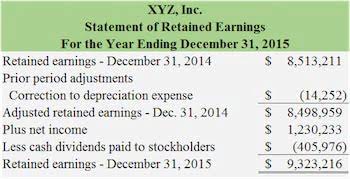
Understand obligations and professional responsibilities of bookkeepers and accounting professionals by studying real world issues and develop a personalized ethics tool for making ethical decisions in the workplace. Examines application of basic accounting concepts, principles and procedures to more complex business situations in a corporate setting. This four-credit course establishes a basic framework for examining how tax implications affect business decisions. You’ll learn to determine after-tax profit or loss from business and investment transactions, and to think strategically about tax effects in order to shape optimal business transactions. Our top-ranked graduate accounting program is committed to teaching ethical and purposeful accounting practices.
- Dive into financial reporting, taxation, and auditing, gaining a comprehensive understanding of the financial landscape.
- On the recommendation of the American Institute of CPAs (AICPA), the FASB was formed as an independent board in 1973 to take over GAAP determinations and updates.
- These critics claim having strict rules means that companies must spend an unfair amount of their resources to comply with industry standards.
- Learn and cultivate the ethical commitment needed to ensure work in the business world meets the highest standards of integrity, independence and objectivity.
- Getting an accounting and analytics master’s degree gives you an edge with potential employers and sets you up to rise quickly in your organization.
- For instance, GAAP allows companies to use either first in, first out (FIFO) or last in, first out (LIFO) as an inventory cost method.
Intensive Analysis of Accounting Principles & Practices
These critics claim having strict rules means that companies must spend an unfair amount of their resources to comply with industry standards. Although privately held companies are not required to abide by GAAP, publicly traded companies must file GAAP-compliant financial statements to be listed on a stock exchange. Chief officers of publicly traded companies and their independent auditors must certify that the financial statements and related notes were prepared in accordance with GAAP.
Networking with Accounting Professionals
Program Pathways are a series of courses and experiences carefully selected to help you earn your credential and prepare for your career or university transfer. Program Pathway Maps guide you through quarter-by-quarter coursework, indicate when you’ll need to complete important steps, and describe popular careers in this pathway. Some course sequences or recommended courses can be customized or adjusted by speaking with an advisor. With a Graduate Certificate in Accounting, you can gain general or specialized knowledge in accounting, further your professional formation, and work toward professional certifications such as CPA, CIA, CISA, CMA, or EA. Or simply use accounting knowledge gained at the Albers School of Business and Economics to enhance your success in related management roles.
Preparing for High Demand Accounting Careers

In order to succeed, you need to understand these emerging technologies, analyze data and create data visualizations. If you are an F-1 nonimmigrant student who has completed 12 months of post-completion Optional Practical Training, receiving a degree in a DHS-approved STEM program means you are eligible for a 24-month OPT extension. To learn more, please speak to a Seattle University international admissions counselor.
Area of Study

Federal endorsement of GAAP began with legislation like the Securities Act of 1933 and the Securities Exchange Act of 1934, laws enforced by the U.S. Today, the Financial Accounting Standards Board (FASB), an independent authority, continually monitors and updates GAAP. bookkeeping seattle Standardized accounting principles date back to the advent of double-entry bookkeeping in the 15th and 16th centuries, which introduced a T-ledger with matched entries for assets and liabilities.
Business Administration, Certificate
Accounting information is not absolute or concrete, and standards are developed to minimize the negative effects of inconsistent data. Without these rules, comparing financial statements among companies would be extremely difficult, even within the same industry. Comparability is the ability for financial statement users to review multiple companies’ financials https://www.bookstime.com/ side by side with the guarantee that accounting principles have been followed to the same set of standards. This makes it easier for investors to analyze and extract useful information from the company’s financial statements, including trend data over a period of time. It also facilitates the comparison of financial information across different companies.
Learn More

As you navigate through the curriculum, you’ll sharpen your understanding of accounting principles while also mastering data-driven decision-making. This degree not only prepares you for a dynamic career in accounting but positions you at the forefront of leveraging data analytics to drive strategic financial insights. With a focus on practical application, you’ll graduate well-prepared to navigate the evolving landscape of accounting and contribute meaningfully to data-informed business strategies. Introduction to financial accounting concepts with emphasis on the development of the student’s ability to understand and interpret financial statements of business entities.
- The following subsections introduce and explain the roles that various boards and organizations play in the ongoing development of generally accepted accounting principles.
- QuickBooks organizes and summarizes all financial data and produces a myriad of reports.
- Still, caution should be used, as there is still leeway for number distortion under many sets of accounting principles.
- The United States uses a separate set of accounting principles, known as generally accepted accounting principles (GAAP).
- You will explore how accounting is the language of business and how it can be used to communicate financial information, make decisions, and solve problems.
- At Seattle University, we encourage you to work towards your professional formation and to develop your whole person and full self.
- Without regulatory standards, companies would be free to present financial information in whichever format best suits their needs.
Intensive Analysis of Accounting Principles & Practices I
Under the agreement’s terms, the FASB and the IASB established the joint objective of developing accounting standards with international cross-jurisdictional compatibility. These 10 guidelines separate an organization’s transactions from the personal transactions of its owners, standardize currency units used in reports, and explicitly disclose the time online bookkeeping periods covered by specific reports. They also draw on established best practices governing cost, disclosure, matching, revenue recognition, professional judgment, and conservatism.
- Since accounting principles differ around the world, investors should take caution when comparing the financial statements of companies from different countries.
- Despite some progress under the Norwalk Agreement, the FASB and the IASB continue to battle friction resulting from fundamental disagreements at the governance level.
- Accounting principles are rules and guidelines that companies must abide by when reporting financial data.
- The GASB was established in 1984 as a policy board charged with creating GAAP for state and local government organizations.
- The Accounting Mentor Program was launched to increase students’ interactions with professionals currently practicing in the accounting field and also serve as a networking tool for students and mentors alike.
- Based on jobs, activities, and processes, students compute unit-cost data and present profit planning analyses.
- The first course provides a brief review of basic journal entries and financial statement preparation, then goes on to examine the concepts underlying financial accounting.
Without regulatory standards, companies would be free to present financial information in whichever format best suits their needs. With the ability to portray a company’s fiscal standing in a favorable light, investors could be easily misled. Learn about start dates, transferring credits, availability of financial aid, and more by contacting the universities below. However, the FASB and the IASB continue to work together to issue similar regulations on certain topics as accounting issues arise. The International Accounting Standards Board (IASB) issues International Financial Reporting Standards (IFRS). These standards are used in approximately 168 jurisdictions, including those in the European Union (EU).
